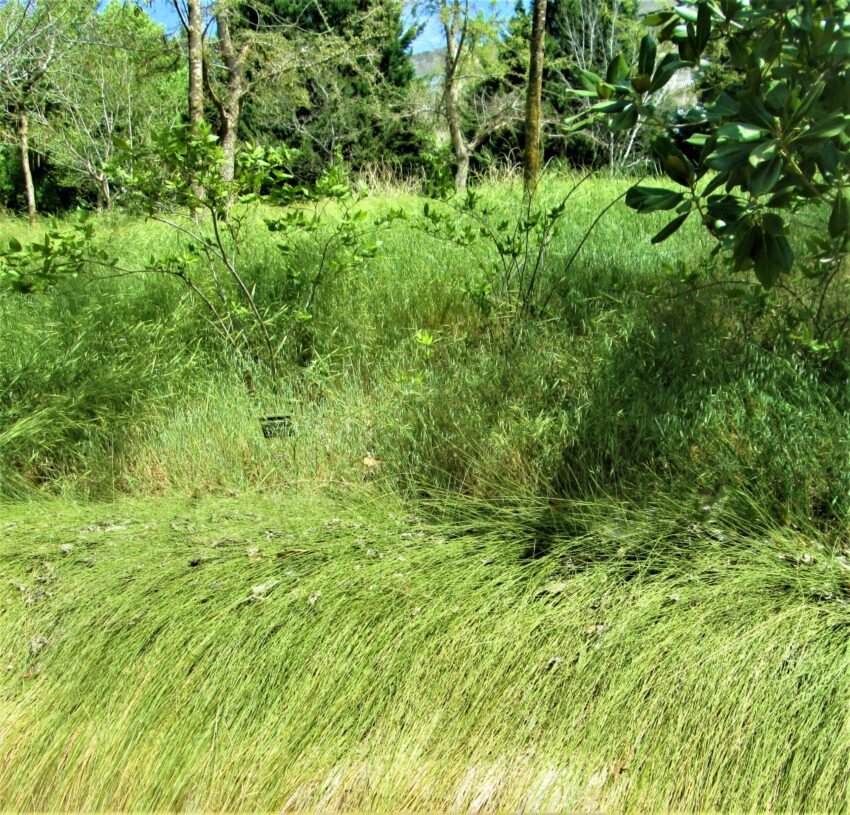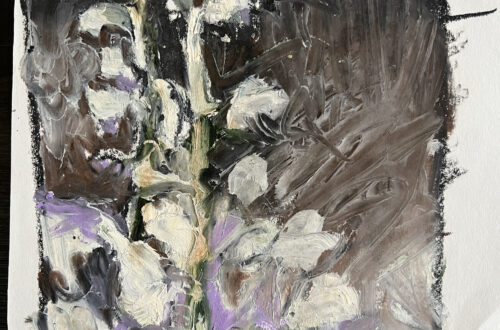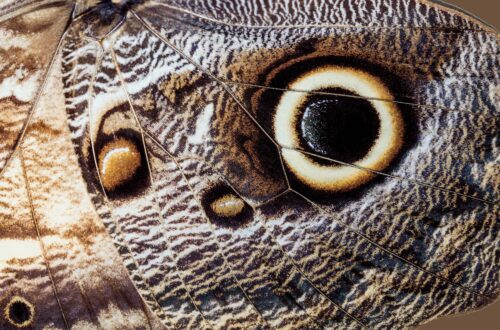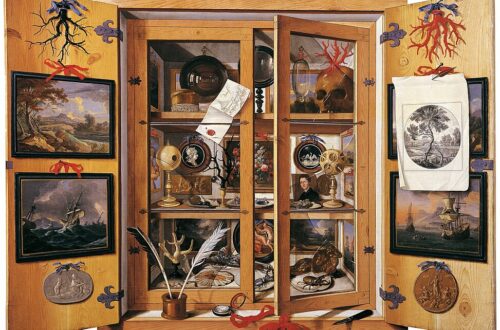
Historical Homes of Currituck County
by Jessica Payne
drawing by Charles Henry Alston, 1935–43
We were discussing countertops when our son began to seize in the backseat. I mistook it for something innocent. He was sleeping…dreaming, perhaps. A small twitch of his left leg, like riding a bicycle. “What is he doing” I said. The car became dark as we drove beneath the overpass, when we exited the other side, he was thrashing. You climbed over the console; you repeated his name. I was confused if I should pull over, as if steering the car put us further from the issue at hand. We were driving over spoiled land, a haunted highway, maybe that was what I thought. When I slowed the car to the side of the road, you pulled our son from his car seat, his head and limbs dangling from the sides of you as you turned and ran up the hill. His eyes rolled backwards; he gazed at me as he swung in your arms. His cap fell onto the ground. Eight by two by one and a quarter. Was that the number that I was supposed to be calling? Six by twenty-five by one and a quarter. You shouted at me to call 911. There was a hold, I was in a queue, a harmony of howls across the city. How many mothers were there, how many children? The cry of the banshee, I joined the chorus. “Are you fucking kidding me?”
Mommy, don’t say that word.
Nobody stopped. A man on the side of the road, clutching his four year old son, shouting for the child to lie still. A woman sobbing into a telephone. We were ghosts in that moment. We were the haunted highway upon which they drove. We were like them once, just moments before. I drove a few miles over the limit, onto our next destination, our next distraction. There was a fault line, a crack. We were fragments that fell through. We were on the backside of the mirror.
Our son was gray, his face was still. His mouth hung open. The seizing was over. We tried to rouse him. You laid him on the grass, I placed my hand beneath his face to cup his cheek. Men showed up to the scene, so they called it. Each response turned to relief when I answered, “he was born with a genetic condition.” I watched each catch his breath, and then nod his head. This was the reason, we were already ghosts, and now it was obvious to them. These men who see ghosts often, I can imagine it gets a bit confusing for them. One of the men removed his jacket and placed it beneath my son’s head. He understood the importance in creating a barrier between the soil and an ailing child. “I don’t want him to slip.” I said, as we braced upon the hillside.
You climbed into the ambulance with our son; the day granted privacy from the other drivers. The goings-on, inside, cloaked in a heavy darkness, a stark contrast to the diorama that is created by its interior light at night. A movie screen of trauma and heartache for the delight of those going home, a show. I followed behind. You told me that you would call if something happened. I knew it was impractical, but I felt comforted, nonetheless. I arrived at the hospital as they unloaded our son on the stretcher.
When I entered the room, he was lying beneath an examination lamp. His limbs stretched apart from each side; his face turned toward the light. My baby, I said internally to him, time and again I lose you, are you there? He was sleeping, not like children should. He was in the deep. Are you swimming, my little fish? I imagined his puckered lips, his laugh. Memories began to vibrate like sheet metal; easy and soothing, at first. Then violent and confused, there was no telling where one ended and the next began. I thought I may lie on the floor with my hands over my ears to stop the deafening sound of the other side.
It was dusk when we exited the children’s hospital. The drive was long. We passed the hill, from earlier in the day, where you held our son and we cried. We did not speak of it. Our ghosts now live there, unseen even to our eyes. In the wind and between the trees, a howl. There was a house, neighboring ours by some miles. “It’s an old brothel”, my mother once said, “that’s why they can’t get it sold.” When we drove by there were new owners in the front yard, burning wooden chairs. “What a peculiar thing,” I said. We were both startled by the height of the flames beneath the hanging trees. A few days prior, I found the listing on a website with images of the interior, a hidden double car garage around the back. “I would have never known,” I said.
We pushed the ottoman against the corner of our new sectional sofa, you said, “it’s like a full sized bed.” I slept with our son in our living room each night, awaking every so often to the sound of gnashing teeth or a clicking in the throat. “It’s fine until it spreads into his face,” I said, during an afternoon call from the pediatrician. He politely ended the conversation with an assumed feeling of discomfort. I said to you, “doctors are not our friends.” I reminded myself of this fact many times since our son’s birth, somehow I always found myself in thought about how they spent their weekends. We were less scary than we appeared, they knew that, but still they held us at an arm’s length.
“It’s normal,” he said, when we visited the neurologist in his small office, later that week, “these things are scary, especially the first few times.” I could faintly make out his jawline through the shifting layers of his mask. He handed our son a small red ball to occupy his energy. We drove home with a list of medications to research and to decide upon. We passed the old brothel and there were remnants of the wooden chairs in the front yard, an assembly of tar and ash. “Do you think the chairs came with the house? Do you think they know?” you asked. “They aren’t from here, you can tell from their taste in windows,” I replied. The home was a brick, mid-century. The occupants knocked the windows from their frames and filled a portion of their intended length with siding. “Who would do such a thing,” I asked upon its completion. You laughed, “who cares.” The halved revision of the windows was an eyesore. They bothered me for reasons that I could not explain.
Our son crashed into our home with force. He kicked one shoe into the air, it landed on its side beside a dried out snake plant. He used his chubby fingers to push the other shoe from his heel. He asked for bread. “My little bird face,” I said. It was something new, this food request. I tore a slice into pieces for the plate that lay before him on the table. The countertops were gone. We could look down into the cabinets below. Our secrets on full display, the clutter and calamity of pots, pans, casserole dishes, and cake plates exposed. The original countertops were laminated with a visible seam. “Builders basic,” the realtor said during our first walkthrough, “easier to make it your own.” I spent countless hours attempting to paint over the purple and red kitchen walls during our first weeks in the home. “The trim, too,” I said atop an exasperated breath. “Of course, you can’t have purple and red walls with white trim,” you answered. The home lived a harsh seven years before we rescued it from its misfortune. My father imagined that the original owners ran a daycare, “it’s the only explanation.” The paint was nothing compared to the scratches the sellers left atop the wooden floors and the chunks taken from the door trim upon their move-out. “I guess this is what we get for asking them to pay closing,” I said.
Our home lived between open fields and a swamp. It sat properly in a row of four newer builds. “That is my dreamhouse,” I said to you as we passed the large white corner house with a cupula. It sat around a bend from the old brothel and just across the street from a structure known as “the Twin Houses”, identical farmhouses that were attached by a covered hallway in the center. “A doctor bought that house, I read about it online, nearly 60 years after it was built,” I said to you, “he was shot up in Rhode Island during the Civil War”. You looked over your shoulder as we approached the fork in the road, “looks haunted.” Our son sat in his car seat, a boxed king size mattress slid past him from the trunk and wedged between us.
There were cracks sprouting from the doorframe in our bedroom. We placed spackle and sanded it down. You brought the paint from the garage, time and again. “My grandfather says we need to jack the house up,” I said. You shrugged your shoulders. I was confused with the motion, if it were meant with intent or to adjust the way your shirt fell across your back. The crack was on both sides, I pulled you by the hand to show you. “See, it’s in here,” I pulled you into the hallway, “and it’s here. Perfectly symmetrical.” You shrugged your shoulders, again, and said, “well, of course it is.”
Our house rocked as the wind blew across the fields. One night the wailing stopped to pull me from a dream. The room was pitch, our son’s color felt gray. I placed a palm upon his chest to catch his breath and returned empty handed. “Oh my God,” I said loud enough to wake you. “What is it,” you turned to press the switch upon the night table lamp. “He’s gone.” I began to breathe heavily. The light flickered across the room. “Mommy,” our son placed the back of an arm across his eyes and began to whimper. I slid beneath the quilts and sang to him in the dark. I lived in fear that our house would tumble around us.
We chose a medication upon our return to the neurology office. The doctor asked our son to sit on his lap. He was usually restless in medical offices, “triggered” the staff called it. He sat on the doctor’s lap and did not move. “No swimming, no bicycle riding, no climbing ladders without supervision,” he said, “and watch out for sleep deprivation.” He warned us that the seizing was bound to occur again, “even with medication.” We climbed into the car, and you drove us home. “Ladders? Come on, how ridiculous,” I said. “So much for him helping me with the flashing,” you laughed. I did not see the point in jokes.
When we drove past the old brothel, there were children out front swaying on a tire swing. The pile of ash remained in the center of the yard. It made me uncomfortable, the sight. “They are a strange bunch,” I said to no reply. The windows, like drooped eyelids, appeared a pity. You dropped us at home so that you could fit the new countertops into the car. When you returned, you asked for help bringing them into the house. I dropped my end, during one trip, onto the wooden floor. “Be careful,” you said. Our son watched from the sofa.
“I may have to cut up the tile to get these in right,” you leaned your end of the countertop against the cabinets. I followed. You placed the white tile behind the sink, four years prior, while I was pregnant. “It smells like a construction site,” I said, retching, upon each return home. “I don’t know what that means,” you replied. The smell of dust and glue made me nauseous; I took most meals in the backyard to avoid the sickness. I was cautious during pregnancy. “No hair dye, nail polish, or pineapple,” I told the doctor during my prenatal visits. I fainted on occasion, but I was otherwise healthy. Our son was small when he was born that Friday night. The lights were low, we could barely see him. It took a few moments for him to cry, but we were assured by the doctor that he was fine. We dressed him in a cotton hat with bunny ears to go home. Our first pictures together revealed my hair had turned silver.
“It hurts,” our son said as he began to seize one night at bedtime. You held him across your lap, I cupped his small hand inside of mine. “It’s okay, my honey bunny,” I said. His eyes rolled to the side and his face began to glitch. We watched the clock on the wall and decided when it was time to pull the medication from its sleeve. The ambulance arrived; the paramedics insisted upon the nearest hospital. “If only I’d known it would be like this, we would’ve never left home,” I said. You shook your head, “now is not the time.” We signed papers that caused the paramedics to turn and leave. I drove us to the children’s hospital in the next state, where the doctors were not our friends, while you sat in the back seat to safekeep our son. “I hope you don’t mind,” my mother said upon our return, “I added you to the prayer circle.” In the weeks to follow, we received cards, quick breads, and invitations to my mother’s church near the ferry slip.
“The countertops will need upkeep about every six months,” you said as I entered the kitchen for the reveal, a few weeks later. “They’re beautiful,” I said and brushed my hands across the top, “now I just need my stained glass panel for the window over the sink, and a Dutch door to replace the sliding ones.” We took a walk through the woods after dinner, and our son collected rocks in his pockets. “That is a heart and that is a cloud. That is a horse and that is a boat,” he said as he lined them across the floor later that night. We pushed onto our sides, each night, to lay him in bed between us.
That summer came an ocean storm. We drove past the brothel on the way home from the store. The occupants were burning branches in the front yard. “Before a storm?” I said, “I’m surprised they haven’t boarded up and left town, back north.” I laid in bed that night and grew anxious as the gusts became stronger. “I hope they put out those flames, earlier,” I said. You were sleeping, I was convinced that my words influenced your dreams. In my own, I found you knocking with full pockets and rock sized appendages at the brothel. From behind a burning tree, the wind stole my screams. “He’s gone,” I howled. You pressed the switch on the table lamp, the light flickered on. “Mommy,” a small voice called from the other side of the door. Our son had walked into the hallway and lost his way back to bed in the dark. You opened the door and closed it briskly when he entered. “You have to stop this,” you said. The crack appeared longer as it bulged from the corner of the doorframe. “When are you going to jack the house up? It’s built on fucking sand, it will only get worse,” I cried.
“Mommy don’t say that word.”
I slid beneath the quilts to sing to our son. You quietly closed the door. I listened as the legs of the ottoman dug into the wooden floor as you pushed it to the corner of our sectional.
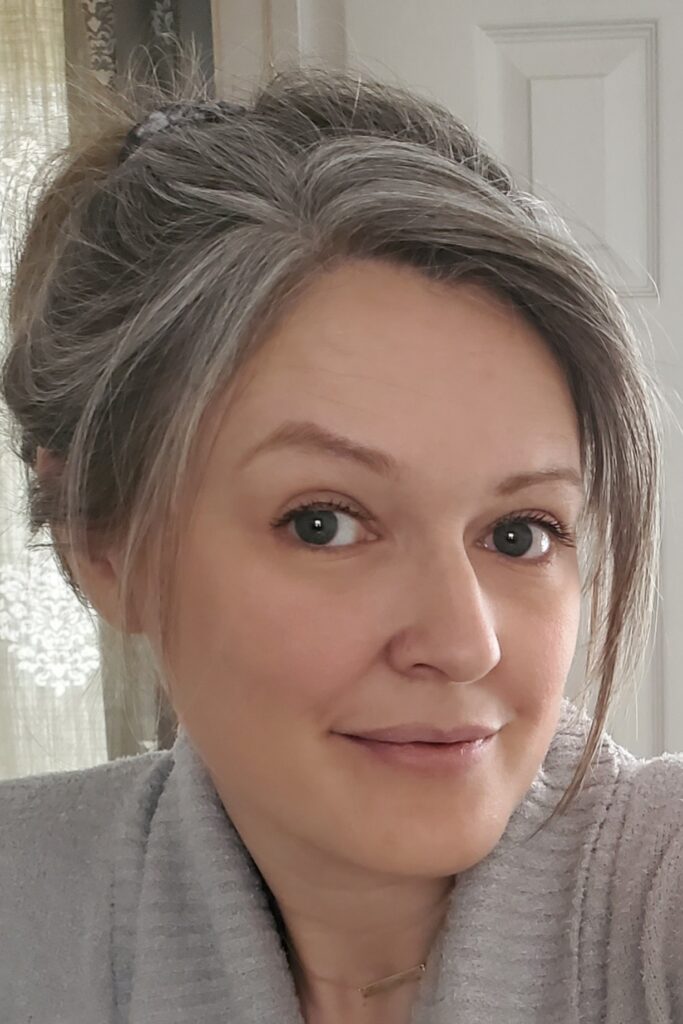
Jessica Payne resides with her husband, seven year old son, and two beloved dogs in Shawboro, NC. She takes joy in growing the proud peony bushes and gardens that surround her home during the spring and summer months. For 10 months of the year, she teaches a class of lively second graders at a quiet rural school. In the moments between, she writes.
